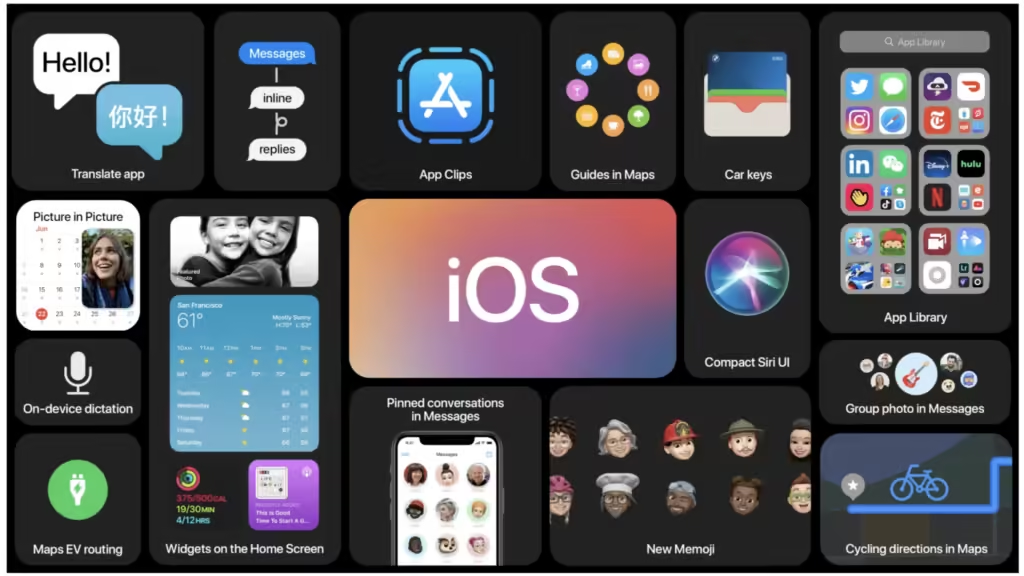As iOS development evolves, the demand for efficient and scalable data handling solutions has become more pressing. Enter SwiftData, a powerful framework designed to simplify and optimize how developers handle data in iOS applications. With iOS 18, SwiftData has continued to evolve, providing new capabilities that streamline data storage, retrieval, and synchronization across devices.
In this post, we’ll explore how SwiftData has transformed in 2024 and why it’s essential for modern iOS applications. From its core features to advanced techniques, you’ll learn how to leverage SwiftData to master data management in your projects.

Why SwiftData Matters in 2024
With mobile apps becoming more data-intensive, developers are often tasked with managing large datasets, syncing across devices, and ensuring that data remains consistent and secure. In 2024, SwiftData has emerged as a critical tool for iOS developers, offering:
• Optimized Performance: SwiftData is built for speed, providing optimized data structures that allow for fast querying, fetching, and saving of data.
• Scalability: Whether you’re working with small datasets or need to scale your application to millions of users, SwiftData provides robust tools to ensure efficient data handling.
• Seamless Integration with Swift: As an integral part of the Swift ecosystem, SwiftData allows you to take full advantage of Swift’s type safety, performance, and ease of use.
Key Features of SwiftData in 2024
SwiftData has introduced several powerful features in 2024, making it easier than ever to handle data in iOS applications. Below are some of the most notable updates and features:
1. Automatic Data Sync Across Devices
One of the standout features of SwiftData is its ability to sync data automatically across devices. Whether it’s syncing user preferences, offline data, or app state, SwiftData ensures that data remains consistent across iPhones, iPads, and even macOS devices.
• Use Case: Imagine building a notes app where a user can jot down notes on their iPhone, continue editing on an iPad, and access everything on a Mac. SwiftData handles synchronization in the background, so the user never experiences discrepancies in data.
2. Optimized Fetching with Predicates
Efficient data retrieval is key to maintaining a smooth user experience. SwiftData introduces optimized fetching with predicates, allowing developers to fetch only the necessary data from large datasets.
• Use Case: If your app handles thousands of records, like a movie streaming app with a vast content library, SwiftData’s predicates enable you to fetch only the relevant records based on user preferences or search queries, improving app speed and responsiveness.
3. Built-in Encryption for Data Security
Security remains a top priority in app development, especially when handling sensitive data. In 2024, SwiftData comes with built-in encryption mechanisms to protect user data from unauthorized access.
• Use Case: In apps where user privacy is essential, such as financial apps or healthcare applications, built-in encryption ensures that data at rest and in transit is securely protected.
4. CoreData Compatibility
For developers already familiar with CoreData, SwiftData’s compatibility with existing CoreData models and entities makes the transition seamless. You can migrate from CoreData to SwiftData without losing functionality or needing to rewrite significant portions of your codebase.
Internal Link: Read more on our CoreData vs SwiftData comparison.
5. Asynchronous Data Handling with Swift Concurrency
With Swift Concurrency fully integrated into iOS 18, SwiftData supports async/await for handling data asynchronously. This ensures that your app’s UI remains responsive, even when dealing with complex data operations.
• Use Case: Suppose your app needs to fetch and display real-time stock market data. Using async/await with SwiftData allows you to manage these updates asynchronously, ensuring the UI remains snappy without blocking the main thread.
Best Practices for Working with SwiftData
To fully harness the power of SwiftData in 2024, developers need to adopt certain best practices:
1. Optimize Fetch Requests: Always define clear predicates and sorting criteria to avoid fetching unnecessary data.
2. Batch Processing for Large Datasets: Use SwiftData’s built-in support for batch processing to handle large datasets without overloading memory.
3. Test Synchronization Across Devices: Always test your app’s data synchronization across multiple devices to ensure a consistent user experience.
4. Leverage Encryption for Sensitive Data: Ensure that any sensitive data is encrypted, even if it’s stored locally on the device.
Common Pitfalls and How to Avoid Them
As powerful as SwiftData is, there are a few pitfalls that developers should watch out for:
• Overfetching Data: Fetching large datasets without using appropriate predicates can result in slow app performance.
• Ignoring Error Handling: While SwiftData automates many tasks, always implement proper error handling for data syncing, network issues, and database operations.
• Not Testing Concurrency: SwiftData’s asynchronous operations require thorough testing, especially when dealing with UI updates.
How SwiftData Fits into the Larger iOS 18 Ecosystem
SwiftData isn’t just a standalone data-handling framework—it fits seamlessly into the larger iOS 18 development ecosystem. Whether you’re using SwiftUI for UI development or integrating with Swift Concurrency, SwiftData is designed to enhance the entire development process by making data management more intuitive and efficient.
As iOS continues to evolve, expect SwiftData to become an even more integral part of modern iOS development.
Conclusion: Future-Proof Your iOS Apps with SwiftData
In 2024, mastering SwiftData is crucial for building robust, scalable, and efficient iOS applications. Its seamless integration with the Swift ecosystem, powerful data synchronization capabilities, and support for modern concurrency patterns make it an essential tool for iOS developers.
Whether you’re migrating from CoreData or starting a new project, leveraging SwiftData ensures that your app’s data handling is future-proof, secure, and optimized for performance.
External Links:

